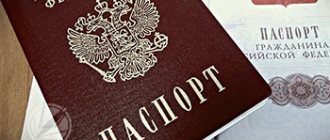What is a closed will and why is it necessary?
Content
A closed will is an administrative act of the testator, the information of which is hidden from the notary and other persons until it is announced. You can find out the contents of the document after the death of the will-maker.
The right to draw up this type of order belongs to any citizen of Russia. Article 1126 of the Civil Code of the Russian Federation regulates the main provisions of a closed will.
The need to choose a secret form of a document arises in the following cases:
- deliberate concealment of the testator's decision on the division of property;
- action in emergency situations;
- protection of the interests of heirs;
- guarantee of one’s own safety (attempts at blackmail, threats);
- preventing premature conflicts between legal successors.
A closed will requires strict adherence to legal norms, otherwise the transaction may be declared invalid. Legality is ensured by notarization in the presence of 2 witnesses.
Laws and legislative acts in the Russian Federation regulating the secrecy of the creation of a will and the secrecy of its contents
We list all the legal acts that stipulate the secrecy of a will, the actions of notaries when drawing up wills, as well as responsibility for disclosing information:
- The basic norms of the law concerning the principles of secrecy of a will are enshrined in Article 1123 of the Civil Code of the Russian Federation. The article specifies the circle of persons who have the obligation to keep the will secret, and the same article also establishes responsibility for their disclosure.
- The obligation of notaries to keep information about a will secret is also provided for in Article 5 of the “Fundamentals of the Legislation of the Russian Federation on Notaries,” which specifies the principle of secrecy in carrying out notarial actions.
- The Criminal Code of the Russian Federation also speaks about liability for violation of secrets - Article 137. It talks about the disclosure of information relating to the private life of citizens and constituting a family or personal secret.
- Penalties are also provided for liability for disclosure of information, according to Article 13.14 of the Code of Administrative Offenses of the Russian Federation.
These are the basic laws and acts that can be relied upon in case of violation of the secrecy of a will.
Features of a closed will
Distinctive features characterizing the closed form of the document:
- handwritten method of writing text, the use of technical means is unacceptable;
- placing the paper in a prepared envelope and sealing it;
- presence of signatures of 2 witnesses certifying the fact of transfer and sealing of the envelope;
- The notary has no right to familiarize himself with the contents of the testamentary act.
Direct responsibilities of a notary:
- inserting an envelope with the testator's order into another;
- sealing;
- indication of information about the testator, witnesses, time and place of execution;
- clarification of the legal rights of participants in the procedure;
- preparation of a receipt for acceptance of a closed will for storage;
- issuance of a certificate to the testator.
The advantage of the document is its confidentiality. The transfer of the will is carried out in a sealed envelope, the information contained is hidden.
Notifying relatives about the preparation of the document is not the responsibility of the property owner. The notary maintains professional confidentiality; disclosure of any data is prohibited.
However, the inability to verify the contents of the document is the reason for making mistakes that lead to the nullity of the testamentary disposition.
A citizen with physical disabilities who is unable to express his will independently is limited in drawing up a closed type of act.
Open or Closed: Important Differences
The main difference between the two widows' wills is the order in which they are executed. Most often this refers to a closed type of will, which provides for a special process after the death of the testator:
- within 15 days after the death of the testator, the notary must open the will;
- the autopsy takes place in the presence of the heirs, everything stated is read out;
- the notary draws up a protocol, which is signed by all persons present;
- the original remains in the office, and a certified copy is given to the heirs.
Before opening the envelope, all applicants must ensure its integrity. After which the notary reads out a certification signature confirming the authenticity of the document.
What order cannot be closed?
Taking into account Article 1126 of the Civil Code of the Russian Federation, it is prohibited to draw up in closed form:
- A joint will that can be made by spouses regarding property acquired during the marriage. At the same time, the rules regarding the obligatory share in the inheritance and notarization remain the same. The law provides for the obligation to video record the process, but provides for the right to file an objection.
- An inheritance agreement involves specifying a list of heirs with an algorithm for accepting the inheritance mass. The content allows for the provision of an executor and the imposition of certain obligations on the parties to the contract. The rights and obligations provided for in the document are not subject to alienation or transfer to third parties.
- The decision to establish an inheritance fund.
Failure to comply with a legal requirement entails the nullity of wills and contractual agreements.
Open view
To understand the types of such wills, you need to understand what the document itself is, how, where it is drawn up, and certified. A will is an official document certifying the order of inheritance of the owner's property after his death.
The owner has the right to change, reinterpret, and bequeath to other persons. Only the last will is considered legal; all previous wills are automatically canceled on the day the new document is drawn up. The testator independently chooses the type of document - closed, open will. The owner of the property has the right to draw up and sign it, being of sound mind, normal memory, and not being under anyone’s pressure. If there is a suspicion that this was not the case, the court may declare such a transaction invalid.
Important! The document is drawn up by one testator. Two or more persons cannot act as testators.
In Art. 149 (Civil Code of the Russian Federation) indicates persons who cannot be deprived of inheritance, regardless of whether there is a will or no such document. In the legislation they are referred to as obligatory heirs:
- minors, direct minor heirs under 18 years of age;
- Directly disabled (children, husband/wife);
- mother/father of the testator recognized as disabled;
- persons who are dependent on the testator.
Most often, a document is drawn up in the presence of a notary, who verifies the authenticity of the documents and the health status of the testator. Confirms the fact of the completed transaction with a signature or seal on the form of the accepted sample.
| Type of will | Regulatory articles of the Civil Code |
| Open (notarized) | GK. Ch. 61. Art. 1127 |
| Closed (certified in closed form by a notary) | GK Ch. 9. Art. 160 |
| Will in emergency circumstances (certified by authorized persons: chief physician, boat captain, consul, etc.) | GK Ch. 62. Art. 1129 |
| In favor of any person (freedom of a will, drawn up by a notary) | GK Ch. 62 Art. 1119 |
This is interesting: Heirs after the death of a wife without a will 2020
There are situations when it is impossible to draw up a will notarially. For example, there is no notary office or it is located far from your place of residence. Such situations are provided for in Art. 127 (Civil Code of the Russian Federation), which gives the right to draw up wills to the following civil servants:
- heads of the medical institution where the owner of the property is undergoing treatment;
- chief physician in a nursing home;
- captain of a sea vessel, if the owner of the property is his employee;
- expedition manager;
- commander of the military personnel, if the owner of the property is a military personnel;
- manager in places where the owner is serving a sentence.
Once I had an interesting case. The woman was seriously ill, but was treated at home. Only the attending physician prescribed treatment, visited her at home, and the nurse carried out the appointments. One day my grandmother asked the doctor who came to help her make a will. The doctor refused, but after much persuasion and undeniable arguments, he “helped” the grandmother. The will was drawn up correctly, signed by the woman, the attending physician. The doctor's personal seal was used as a wet seal.
After her death, her will was declared invalid. This could not have happened if the transaction had been certified by the chief physician of the district hospital. But the district police officer does not have the right to do this if the patient is being treated at home. But you could just invite a notary to your home. It’s just that her doctor didn’t tell her this.
Procedure for registering a closed will
Drawing up an administrative document involves the following algorithm of actions:
- Collection of documentation. You need to take care in advance of certificates and documents confirming the accuracy of the information in the will. This will eliminate the possibility of challenge.
- Verification by a notary of the identity of the testator who wishes to express his will in writing regarding the division of property after death. At this stage, the citizen’s legal capacity is determined.
- Informing the testator about the obligatory share of the heirs provided for in Art. 1149 of the Civil Code of the Russian Federation. To prevent disputes, the parts of each should be specified. Ignoring the established rules will be regarded as illegal actions.
- Drawing up a closed will with your own hands in front of witnesses. Individuals do not have to be aware of the contents of the document, but are responsible for confirming that the text was written.
- Packing the administrative act in an envelope and handing it over to the notary.
- Notarization. A public or private notary has the right to certify a document. Receiving services is possible at the place of residence or location of the bequeathed property. You can invite a notary representative to your home. The will of the testator is certified in his personal presence.
Requirements for witnesses
The Russian legislator does not put forward any special requirements for a witness, except for an identity card. However, failure to comply with generally accepted civil rules may result in the invalidity of a closed will. These include:
- capacity of eyewitnesses;
- limitation of choice.
Witnesses cannot be:
- the host;
- family members of the will-maker and immediate relatives;
- illiterate observers;
- citizens with mental disorders and physical disabilities.
The competence of witnesses includes:
- sign the envelope containing the testator’s last will;
- keep the secret of the notary's acceptance of an administrative act for safekeeping.
Registration requirements
The structure of the administrative document includes the following points:
| Chapter | Content |
| I. Document | Name, place and time of compilation |
| II. Testator | Full name, d.o.b., registration, passport information |
| III. Heirs | Full name, d.o.b., registration, passport information |
| IV. Hereditary mass | List of property, title documents |
| V. Distribution | Indication of part of the property and legal successor |
| VI. Confirmation of the originator's identity | Personal signature |
Drawing up a will requires compliance with the following conditions:
- accuracy (avoiding ambiguity). The testator's words are taken literally. Inaccurate information is the basis for challenging a document in court;
- handwritten recording of the contents by the testator;
- free disposal of personal property. The citizen independently determines the circle of heirs and the proportionality of the received share of the inheritance. In a will, the owner of the property has the right to deprive the successor of the right of inheritance by law, except for the cases provided for in Art. 1149 of the Civil Code of the Russian Federation.
There are no requirements for the form and order of presentation of the will for a testamentary document. A closed will is drawn up in Russian. There are no stylistic requirements.
Required documents
Registration of inheritance consists of providing the notary with:
- passports;
- title documents for property: certificate of ownership, BTI certificates, extracts from the Unified State Register of Real Estate;
- documents confirming the absence of encumbrances in relation to the property mass.
The list can be supplemented with documents requested by the notary on an individual basis.
Cost of certification
Carrying out notarial acts involves paying a state fee in the amount specified in Art. 333.24 Tax Code of the Russian Federation:
- identification, acceptance of a document – 100 rubles;
- opening the envelope and announcing the contents - 300 rubles.
The inheritance procedure also requires payment of a fee. Its size depends on two factors: the degree of relationship (0.3% or 0.6%) and the value of the inherited property.
Minors and incapacitated citizens are exempt from state duty, and disabled people of groups 1 and 2 pay half of the mandatory fee.
Engaging an executor
An executor is a person responsible for carrying out the will of the testator. The functions of the executor of a will are activated after the death of the testator.
The activities of the executor are regulated by Article 1133-1136 of the Civil Code of the Russian Federation and are the result of a voluntary transaction.
The contractor has no relation to the preparation of title documents. His actions are aimed at facilitating the fulfillment of the provisions of the will:
- property protection;
- obtaining inheritance for the purpose of subsequent transfer to heirs;
- protection of heirs' rights in court.
The executor plays an organizational role in the inheritance process.
Contents of the envelope
The envelope with the secret declaration of will is signed by 2 witnesses and handed over to the notary for sealing in a storage envelope. It states the following:
- information about the testator (full name, birth date, place of residence, identification document) from whom the closed administrative act was adopted;
- place and date;
- personal data of the witnesses present (full name, registration of each observer according to identity documents);
- information about the capacity of eyewitnesses.
The procedure involves the issuance of a relevant document by a notary.
Responsibility and punishment for failure to maintain the secrecy of a will in Russia by a notary or other person
Dissemination of information about the will by a third party provides the testator with the right to compensation for moral damages or other compensation for leakage of personal information. This is stated in Article 1123 of the Civil Code of the Russian Federation.
From a citizen who has distributed personal information related to a will, in accordance with Article 12 of the Civil Code of the Russian Federation, the testator can:
- Collect a penalty.
- Demand fulfillment of obligations in kind.
- Demand compensation for losses caused to interested parties.
- Change or terminate the existing legal relationship between the notary and him.
- Restore the relationship that existed before the violation of rights.
As legal practice shows, violators often compensate for moral damage.
Let us recall that such harm refers to the physical and moral suffering of the testator, which arose as a result of the disclosure of the secret of the will to third parties.
In addition to monetary penalties, the violator may be subject to administrative liability.
In accordance with Article 13.14 of the Code of Administrative Offenses of the Russian Federation, for disclosing information with limited access, a citizen will pay a fine to the state treasury in the amount of:
- 500 - 1,000 rubles, if he is an individual.
- 4,000 - 5,000 rubles if he is an official.
As for criminal liability, according to Article 137 of the Criminal Code of the Russian Federation, for disseminating information about a person’s private life (family or personal secrets), the violator faces:
- Fine up to 200,000 rubles. or in the amount of a citizen’s total income for a period of up to 1.5 years.
- Completing mandatory work within 360 hours.
- Correctional labor for up to 1 year.
- Forced labor for up to 2 years. The violator may also be deprived of his rights and restricted in his activities for 3 years.
- Arrest for 4 months.
- Imprisonment for up to 2 years with deprivation of the right to hold certain positions or engage in certain activities for up to 3 years.
The extent of the harm caused will be determined in court.
Cancellation of a closed will
Cancellation of a will is a transaction aimed at terminating the legal force of a completed will.
There are 2 equivalent methods (Article 1130 of the Civil Code of the Russian Federation):
- execution of a new declaration of will, replacing the old one and terminating its effect. If this is also cancelled, the previous one cannot be restored. The principle of fungibility applies if the second will covers property mentioned in the old one;
- writing an order to cancel in whole or in part.
The new document is certified at any notary office. If the testator indicates a part of the property from the volume of the inheritance mass of the previous will, one should speak of an amendment, not an annulment.
The notary claims that the canceled deed cannot be opened and returned for the following reasons:
- the document is part of the notarial office work;
- possibility of use in the future by the court or in the inheritance process.
The notary's refusal to return the envelope can be appealed in court.
What is prohibited
The actions of the property owner cannot be of an immoral nature, look like an innocent joke, or the document was drawn up in clear violations of current legislation. It is impossible to bequeath something inalienable:
- the right to benefits, pension, subsidy;
- the right to assign the name of the deceased author of a work.
Some testators sometimes prefer to leave their movable and immovable property, making a closed will, to their pets. Making a decision on such a will is impossible, since animals, according to the legislation of the Russian Federation, cannot be recognized as objects of law. But it is quite possible to indicate a person who will take care of them for a certain amount.
A client approached me with a request to recognize her father’s closed will as invalid due to the fact that his new common-law wife constantly exerted psychological influence on him. The case was quite simple due to a violation of the rules for drawing up a will.
After opening the envelope, it was discovered that the will had been typed on a computer and printed out. Moreover, the testator's signature did not correspond to the actual one. The notary entered the fact, but the lawsuit was filed because the “newly made” widow also went to court. The will was declared invalid. All inheritance rights came to the daughter as the heir of the first turn. The common-law wife was not recognized as an official wife, since she lived with the deceased for a little over a year.
Entry into inheritance under a closed will
The order of inheritance consists of several stages:
- opening the envelope and announcing the secret will of the testator;
- consideration of appeals from heirs;
- issuance of certificates of inheritance rights.
To enter into legal rights, you must contact the notary’s office with an application for acceptance of the inheritance mass at the place where the inheritance case was opened.
Announcement procedure
The period for reading a closed will by a notary is 15 days from the date of receipt of the document on the death of the testator. The envelope is opened in the presence of 2 witnesses. Legal successors not specified in the order may also be present during the process.
When reading the text of a document, a protocol recording of the voiced information is carried out, requiring signature by a notary and observers.
If a will is not found in the envelope or the document drawn up does not have legal force, the protocol does not confirm inheritance rights. Inheritance of the testator's property is carried out taking into account the previous will, and in the absence of one, it is distributed according to the law in accordance with the provisions of Art. 1141 of the Civil Code of the Russian Federation.
Documentation
List of documents for heirs:
- written application for inheritance (issuance of a certificate);
- confirmation of the death of the testator (original);
- a certificate establishing cohabitation with the deceased;
- document on the degree of relationship;
- passport;
- ID card of a pensioner or disabled person;
- power of attorney (representation of the interests of the heir).
The notary checks the documentation of each legal successor for the possibility of laying claim to the testator's property. The fact of confirmation of inheritance rights is recorded in the protocol.
Acceptance deadlines
The period of entry into inheritance rights is regulated by Art. 1154 of the Civil Code of the Russian Federation.
| Fact | Duration (in months) | The beginning of the calculation |
| Acceptance of inheritance | 6 |
|
| Emergence of right after refusal or removal of an unworthy successor | 3 | end of six month period |
| Birth of an heir after the opening of a will | 6 | Date of Birth |
The beginning of the period is considered to be the day following the emergence of inheritance rights.
Art. 1155 of the Civil Code of the Russian Federation indicates the possibility of restoring a missed date if there are good reasons in court or with the written permission of the heirs.
What power does a will have?
Content
A will is a document that provides for the procedure for transferring rights to the owner’s property after his death. Unlike the traditional option of inheritance (by law), a will allows you to transfer property to any recipient, be it a person, an organization or the state. It allows the relatives of the deceased to be deprived of a share in the property if he believes that they do not deserve to receive his property.
A will is a one-sided transaction. Therefore, the testator should not ask the opinions of other citizens. He is practically free to choose recipients.
The exception is the right to a compulsory share. The testator must protect the rights of minors and disabled relatives, even if he does not want to do this.
During his lifetime, the testator can change and revoke the will, since it will come into force only after his death. As soon as a new version is compiled, the old one becomes invalid.
Challenging a closed will
A secret order is challenged in the following situations:
- Failure to comply with the law during the procedure.
- Drawing up an administrative act by another person.
- Incapacity of the testator.
- Errors and inaccuracies in the text.
Heirs whose rights are considered to have priority - disabled parents, the testator's spouse, dependents, minor children - have the right to challenge a closed will.
Procedure
Challenging involves filing a claim in court. The procedure for canceling a document is available for 3 years if there is evidence of the incapacity of the testator or violations during registration.
The period for annulment established in the event that it is revealed that a closed will was drawn up under the influence of threats and blackmail is 1 year. The plaintiff must prove his own case by presenting conclusive evidence.
Reading of a will by a notary
According to the requirements of civil law, the deadline for filing claims for inheritance is six months. After this period, the inheritance proceedings are closed. The inheritance is opened only after confirmation of death (the circumstances of the death may affect the identities of the heirs, but not the timing of consideration).
The law grants the right to contact a notary to open an inheritance to all relatives of the deceased, as well as third parties not related to the deceased. To do this, you need to contact a notary office located at the place of registration of the testator. From this moment, a period of 15 days begins to count, during which the lawyer must set a date for opening the administrative document.
The further procedure for opening an inheritance will look like this:
- at the agreed time, all the heirs gather in the lawyer’s office (two additional disinterested witnesses are present);
- drawing up a protocol that displays the personal information of all persons present;
- the envelope is opened after checking the integrity of the seal;
- The text of the administrative document is read aloud;
- distributing copies of the paper to all applicants for property (the original remains kept in the lawyer’s office).
Important! Before the expiration of six months from the date of death of the testator, recipients of material benefits must confirm their consent to register ownership of the objects.
When should you choose this type of document?
Drawing up a PO makes sense in the following circumstances:
- desire to keep secret information about bequeathed property, incl. from a notary;
- reluctance to prematurely disclose the composition of heirs and their shares, concealing this information from potential heirs and interested parties;
- the presence of a real threat to the life of the testator;
- keeping the very fact of a will secret.
The main essence of ZZ is maintaining secrets. The execution of such a document allows us to ensure the real expression of the will of the owner of the property, excluding any pressure and illegal actions on the part of other citizens.
Video: is it worth making a will and how to do it correctly
Whether or not to draw up a testamentary document is a personal matter for everyone. However, this is a convenient and sometimes the only way to divide property between heirs. If relatives believe that the will does not take into account their rights, they can try to challenge it in court. The testator has the right to use the choice provided to him by law: to prefer an open or closed form of the will. In addition, there are other types of testamentary documents, and each has its own characteristics. At the same time, no matter what choice a citizen makes, he must understand that only with proper execution the document will be valid. The notary, in turn, must make sure that the testator is legally competent and of legal age.
- Author: ozakone
Rate this article:
- 5
- 4
- 3
- 2
- 1
(0 votes, average: 0 out of 5)
Share with your friends!
Who should the PO be written and signed by?
The LO is written and signed only personally by the testator - the owner of the property. The main requirement is full legal capacity. A citizen's sanity can be certified by a notary through personal contact, but it is best to confirm it with a certificate from a specialized (psychiatric) institution. Such a certificate eliminates the possibility of challenging the document due to the possible incapacity of the testator.
Another important condition is that only an adult citizen can draw up a PO, i.e. a person who has reached 18 years of age.
Is it permissible to challenge?
The document in question may be declared invalid on the following grounds:
- Inability to identify handwriting when typing an application on a printing device.
- Lack of testator's signature.
- Disposition of property that was not the property of the testator or was in joint use.
- Lack of witness signatures on the envelope containing the sealed will.
- Incapacity of the testator (if there is appropriate medical confirmation).
- Evidence of coercion and the use of illegal actions regarding the testator.
- Not taking into account mandatory heirs.
Contestation of the PP is carried out in court. If the above circumstances are proven, the will is declared void or invalid. Further, inheritance of property is ensured by law, according to the order of heirs.
Nuances
- According to the Civil Code of the Russian Federation, a closed will is transferred to a notary in the presence of witnesses. There is an important point here: not everyone can play this role. Witnesses cannot be:
- any relatives who may claim the inheritance;
- a notary who certifies a document;
- any people who do not know the language in which the will is written.
- A closed will is a document drawn up unilaterally. It follows from this that the consent of the heirs (including direct ones) for its maintenance is not required.
- There is a list of persons who, in an emergency situation, can sign an important document instead of a notary, and it will have notarial force. This:
- chief physician;
- head of a military unit;
- head of the exploration expedition;
- warden;
- captain of a long-distance vessel.
For example, if a person is in the hospital and his condition is close to critical, the role of the notary can be performed by the chief physician of the medical institution - there may not be enough time to call a notary. Or if trouble happens to a person during an exploration expedition, the head of the expedition can act as a notary.
- You can include anyone in a will (including a closed one): a relative, a friend, a colleague. Property can be transferred to any organization, foundation or state. But this does not exclude the fact that heirs entitled to the obligatory share will not be able to claim it.
- Leaving a closed will is the right of any person who has reached the age of 18 and has legal capacity.
- You can write a document in any form - there are no special requirements for the style and form of presentation of your will. It is important that there is no ambiguity in the text and that it is written in Russian (valid for the Russian Federation).









